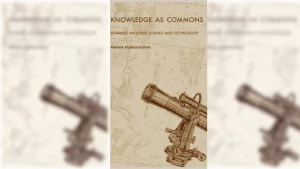A number of groups and people have been extremely uncomfortable in the way an artificial “consensus” for the existing status quo – the control of the Internet by big corporations and the US in the name of multistakeholder model – has replaced any meaningful discussions on Internet Governance. It is with this context that a group of organisations and activists met in New Delhi, India, on February 14th and 15th, 2013 to form the Just Net Coalition1. It addressed two key questions:
- A progressive vision of the Internet
- An Internet that promotes public good and evolves as ‘global commons’.
The Coalition, in its submission2 to the NetMundial Conference, which is to be held on the 23rd and 24th April 2014, pointed out:
Opportunities for the many to participate in the very real benefits of the Internet, and to fully realize its enormous potential, are being thwarted by growing control of the Internet by those with power – large corporations and certain national governments. They use their central positions of influence to consolidate power and to establish a new global regime of control and exploitation; under the guise of favouring liberalization, they are in reality reinforcing the dominance and profitability of major corporations at the expense of the public interest, and the overarching position of some national interests at the expense of global interests and well being.
The Just Net Coalition has also made clear in its Delhi Declaration3, as well as its submission to NetMundial, on the need to radically change the way the Internet is governed, centre staging human rights and social justice.
It is about Control
The revelations from Snowden documents on the NSA’s dragnet surveillance have shaken the world. While privacy concerns have been very much in the news, this is not the most important part of Snowden revelations. When Snowden first met Laura Poitras and Glen Greenwald, he told them that the documents they would see would not only show surveillance on a massive scale, but would demonstrate the economic and political control that the US asserts over the world through such surveillance. The issue isn’t only of privacy – the far more important issue is that of economic and political domination.
We know that the US and its Five Eyes (the US, the UK, Canada, Australia, New Zealand) allies conducted surveillance on:
- 122 world leaders including Angela Merkel, Dilma Roussef4
- political summits (G205, Climate Summit in Copenhagen in 2009 and Bali in 20076)
- Petrobras (which was involved in the auction of oil blocks off the coast of Brazil)7
- an American law firm (Mayer Brown) representing Indonesia in a trade negotiation/ dispute with the US relating to the import of clove cigarettes and shrimp8
None of these are terrorist targets. Such surveillance has economic and political significance, and addresses no security concerns whatsoever.
The EU had previously charged that information from such Signal Intelligence programs (the Echelon program) was used to benefit American companies.9 It is not surprising therefore that big, global US corporations such as AT&T, Verizon, Microsoft, Google, etc., have been deeply implicated in NSA’s drag-net surveillance.
The governance of the Internet
The governance of the Internet is not simply one of running the Domain Name System (DNS) and other critical Internet resources. With the Internet increasingly becoming the global marketplace, repository of knowledge, global media and an essential means of communications, its governance has enormous economic, social and political implications.
Originally, the US government had argued for private sector led Internet governance, which at some point became “transformed” into the “multistakeholder” model. What such binary formulations – for instance positing multistakeholder against multilateral – miss is that while some issues such as technical protocols, etc., can be worked out (global standards are created in this way) between various “stakeholders”, the issues change when public policy is involved. Essentially in policy issues, there are conflict of interests between various parties, which need a concept of public good to be introduced, even if it is against the interests of certain stakeholders. We still do not have an instrument of redistributive justice apart from the nation states.
The relationship of multistakeholderism with the neoliberal paradigm is obvious, as underlying this model is that there should be no global regulations or laws. The fundamental assumption of the multistakeholder model is that all players — operating on equal footing and through consensus — can take decisions on all issues that will be beneficial to all the stakeholders. It does not take into account that groups have differing interests, example, corporations and consumers, global north countries and global south countries, etc. This model, in effect, gives veto power to private companies, thus protecting their existing monopolies and the status quo.
Critical Internet Resources
On domain names (the DNS system), we need to understand that this is high-value real estate, even if it is in the virtual world. The Internet has the potential to create unlimited number of domain names and IP addresses: it is a part of the unlimited global commons that has been or can be created. ICANN”s powers to control this digital commons is by virtue of the US enclosing this commons and handing it over to ICANN. Currently, there is no framework that gives legal rights – to g-TLD’s, cc-TLD’s – to any of the regional or national registers. All the legal rights are derived through private contracts with ICANN, various registers, and the existing contract that ICANN has with the Department of Commerce – the IANA functions contract.
The US has now proposed10 that ICANN take over this function and it will allow its IANA contract with ICANN to lapse, provided
- no multilateral body is created for this purpose
- it remains in the US, therefore under the US juridical control (assurances to the US Congress by Lawrence Strickling, NTIA administrator and in-charge of the IANA contract)
There is a need to discuss – without any such preconditions – what kind of structure is most appropriate for managing such critical Internet resources. Let us not forget that we are talking about hundreds of billions of dollars of virtual real estate, if not trillions. It is not an accident that the bulk of this “real estate” is “owned” by registers in the US and other developed countries.
Competition / Monopolisation:
The combination of intelligence agencies and large, global corporations help concentrate economic power and create large global monopolies. The US stewardship of the key Internet organisations (I* organisations) has meant that the US has been able to implement its neoliberal vision of having no regulation and an unfettered growth of its Internet companies. This has lead to the emergence of global monopolies in this space, within a short time.
The absence of any regulation of the Internet has meant that global Internet companies have been able to build Internet platforms that allow bundling of various services – horizontal monopoly – (Google, Microsoft), while others bundle access and services together – forming vertical monopolies (for instance, Telcos offering Internet services).
Google today enjoys a monopoly never seen before – even the AT&T and Standard Oil monopolies fade in comparison. As data acquires value, companies that mine data through their services – search tools, email services, and so on, these companies use the subscriber data to monetise their services. Subscribers become “products” to be sold to advertising agencies. Every user of Facebook was worth $4.84 in advertisements per year (at the time of the IPO).11
Without a regulatory framework there can be no level playing field in the online economy. This brings us to important issues such as platform neutrality and net neutrality, without which the future of Internet will be dominated by monopolies and may lead to the creation of a tiered Internet (with differential rates of access for different services and content). For the consumers, the deleterious effects of monopolies are obvious.
Cultural Hegemony / Digital Colonialism:
There is a direct correlation between development, Internet access and content, which means the marginialised in ‘global’ society barely produce any content. What this means is that the story of the marginalised is written by people in the first world. The global south can be users of Internet services, knowledge, software and hardware, but will not be its creators. However, they will pay for it, as the Internet payment model is based on user pays principle.
A survey conducted in 1999 by the Economic Commission for Africa shows that the continent generates only around 0.4 percent (1:250) of global content. Excluding South Africa, the rest of Africa generates a mere 0.02 percent (1:5000)!12
Given most content is generated in the global north, this will have long-term adverse effects on local cultures and language. While there are 6,000 surviving languages in the world at present, most of them may disappear as the Internet, largely in English, takes over most of world’s media and content.
What Kind of Internet Do We Want
What should have been a public good/public utility has been privatized by the rich and wealthy countries and their corporations. What was originally conceived of and should have been a global commons or a public utility, is fast becoming private property. Right now, the Internet is broken; people are under surveillance; and our data is being monetised and sold.
If we have to change this, we need a different form of Internet Governance. Not just cosmetic changes to the existing institutions but deep rooted changes that expand democracy and social and economic justice; that preserves the rights of people as well as the sovereign rights of countries; and ensure that the Internet is used for peace and not war. Ultimately, the Internet is too important to be left solely to technical specialists to manage and operate.
Prabir Purkayastha
Rishab Bailey
Knowledge Commons (India)
Parminder Singh
ITforChange
1 The Just Net Coalition comprises several dozen organizations and individuals from different global regions concerned with Internet governance, human rights and social justice, and the relationship between them. For more information visit http://justnetcoalition.org
2 For submission on Internet Governance principles see http://content.netmundial.br/contribution/towards-a-just-and-equitable-internet-for-all/110. For submission on Internet governance roadmap see http://content.netmundial.br/contribution/democratising-global-governance-of-the-internet/164. The documents can also be accessed at http://justnetcoalition.org/netmundial-submissions
3 http://justnetcoalition.org/delhi-declaration
4 See for example, http://g1.globo.com/politica/noticia/2013/09/documentos-da-nsa-apontam-dilma-rousseff-como-alvo-de-espionagem.html, http://www.spiegel.de/international/world/nsa-hacked-email-account-of-mexican-president-a-928817.html, http://www.theguardian.com/world/2013/oct/24/nsa-surveillance-world-leaders-calls, http://www.spiegel.de/international/germany/cover-story-how-nsa-spied-on-merkel-cell-phone-from-berlin-embassy-a-930205.html
5 http://www.theguardian.com/uk/2013/jun/16/gchq-intercepted-communications-g20-summits
6 http://www.theguardian.com/environment/2014/jan/30/snowden-nsa-spying-copenhagen-climate-talks, http://www.information.dk/databloggen/486321 , http://www.theguardian.com/world/2013/nov/02/nsa-australia-bali-conference-spy-indonesia
7 http://g1.globo.com/fantastico/noticia/2013/09/nsa-documents-show-united-states-spied-brazilian-oil-giant.html, http://www.theguardian.com/world/2013/sep/09/nsa-spying-brazil-oil-petrobras
8 http://www.nytimes.com/2014/02/16/us/eavesdropping-ensnared-american-law-firm.html?_r=0, http://www.theguardian.com/world/2014/feb/16/indonesia-australia-and-us-need-to-clean-up-their-mess, http://www.theguardian.com/world/2014/feb/16/australia-spied-indonesia-talks-us-firm
9 http://www.ntia.doc.gov/press-release/2014/ntia-announces-intent-transition-key-internet-domain-name-functions
10 http://techcrunch.com/2012/04/23/your-are-worth-4-84/
11 http://213.55.79.31/adf/adf99/codipap3.htm



